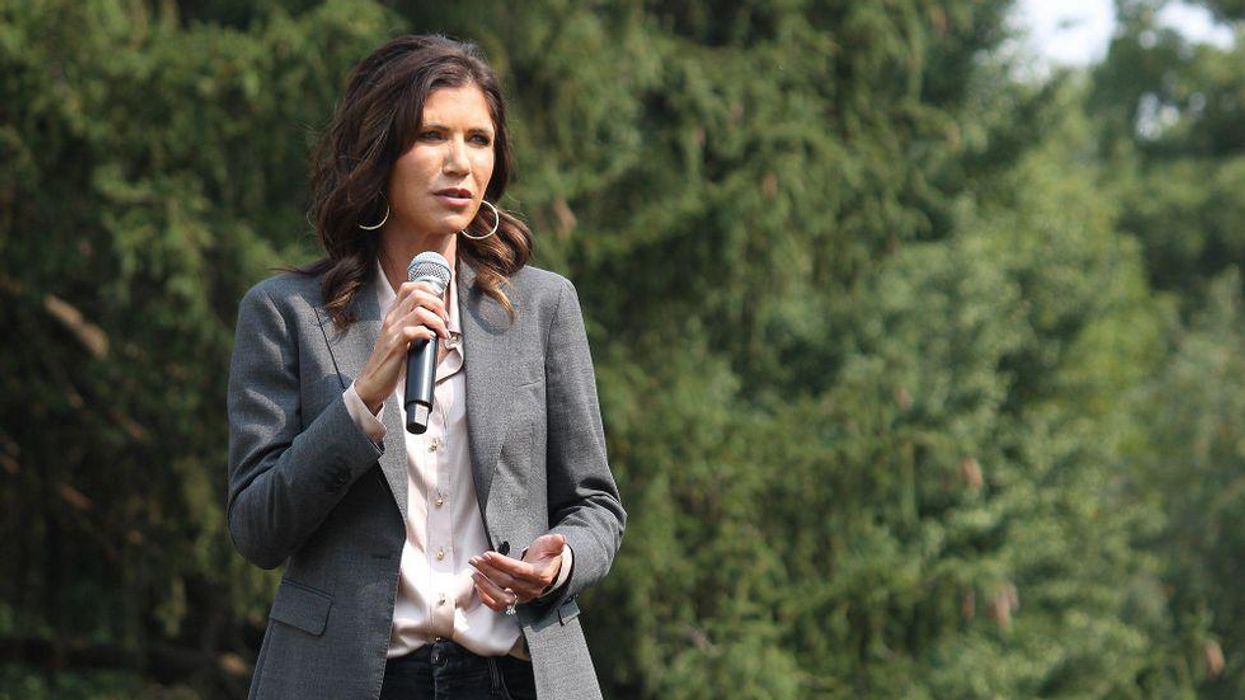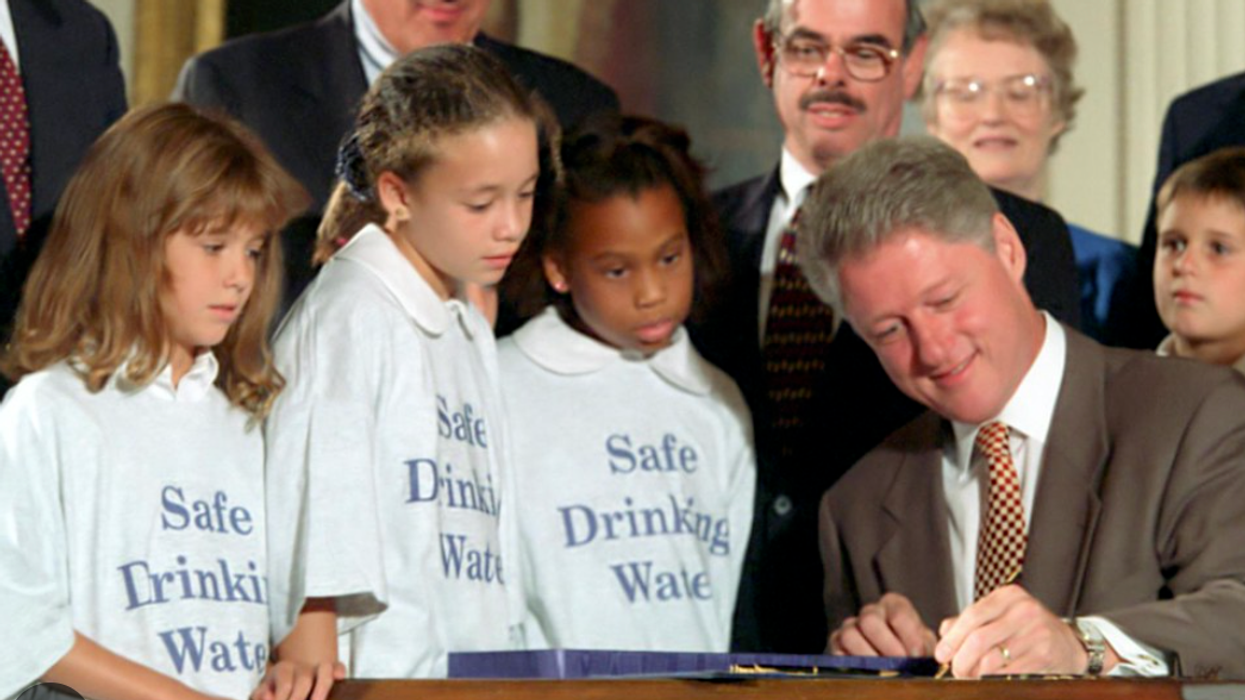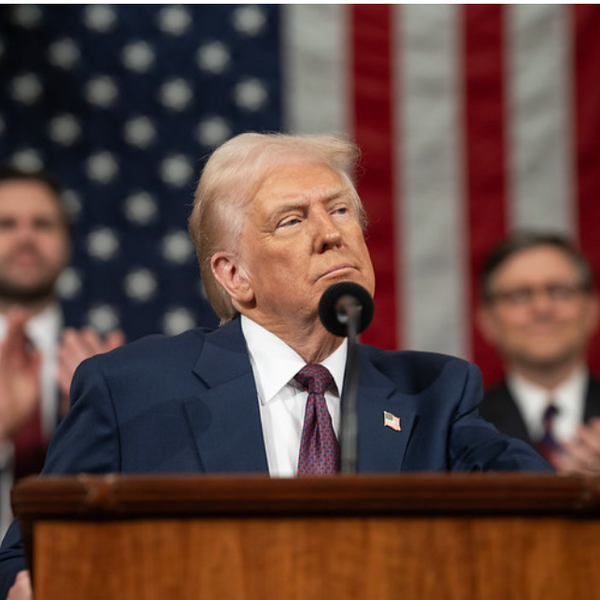Homeland Security Scheme Offers Migrants $1000 To 'Self-Deport'
The Trump administration is offering undocumented immigrants a paltry $1,000 if they choose to “self-deport” in a “dignified” way.
A Monday release from the Department of Homeland Security said immigrants would be paid the stipend “after their return to their home country has been confirmed” through Customs and Border Protection’s Home App.
“This is the safest option for our law enforcement, aliens and is a 70% savings for US taxpayers,” Homeland Security Secretary Kristi Noem wrote in a post on X.
The announcement is a new focal point of President Donald Trump’s ongoing and chaotic policy of mass deportation, with the goal of purging the United States—a nation formed by immigrants—of immigrants. The Trump administration has already been executing that policy by abducting people, some in broad daylight, and forcibly transporting them to foreign nations and the notorious CECOT prison in El Salvador. Some, like Maryland man Kilmar Abrego Garcia, are legally qualified to be in the United States but have nonetheless been removed by Trump’s goons.
The notion that undocumented immigrants would go to such extraordinary lengths to come to the United States, only to upend the life they’ve built for a mere $1,000 is ridiculous on its face. Furthermore, immigration experts who have ridiculed such “self-deportation” policies in the past said migrants who take this offer would often be facing terrible financial straits, violence, or worse in their countries of origin.
Even nonexperts have said such policies are “crazy,” “maniacal,” and “mean-spirited”—at least, that’s how Trump himself described the idea when it was proposed by failed Republican presidential candidate Mitt Romney in 2012.
Aaron Reichlin-Melnick, senior fellow at the American Immigration Council, said the DHS claim in its release that people opting to take the stipend could possibly return to the U.S. after self-deporting was “wildly deceptive.”
“For many people, this is a lie. Leaving will make their cases much worse,” he wrote. Reichlin-Melnick noted that if a person took the offer, a deportation order could then be handed down in court for failing to appear in court.
Even more concerning is Trump’s long history of lying and misleading on matters both big and small. There is little guarantee based on his track record in the presidency and in his private life that Trump’s administration would fulfill a promise to a migrant.
There are also signs that the policy announcement was intertwined with efforts to promote pro-Trump propaganda on the right-wing Fox News network.
Fox reporter Bill Melugin posted on Monday that he had been given “exclusive” early access to the announcement. He then promoted the announcement in an on-air segment on America’s Newsroom. DHS official Tricia McLaughlin did an interview with that program’s hosts to tout the idea as well.
Fox News also pushed the policy in an online story.
Noem has become notorious for engaging in laughable cosplay while doing public relations appearances pushing Trump’s anti-immigrant agenda. It looks like that hobby is a better use of time and taxpayer funds than the administration’s new and unworkable self-deportation plan.
Reprinted with permission from Daily Kos.












